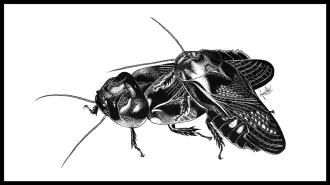Once settled, immigrants play important guard roles in mongoose packs
But it takes time for residents to fully accept new members

JUST YOU WAIT It takes a while for dwarf mongoose immigrants to adjust to life in a new pack, but eventually, group members benefit from newcomers’ contributions.
J. Kern






